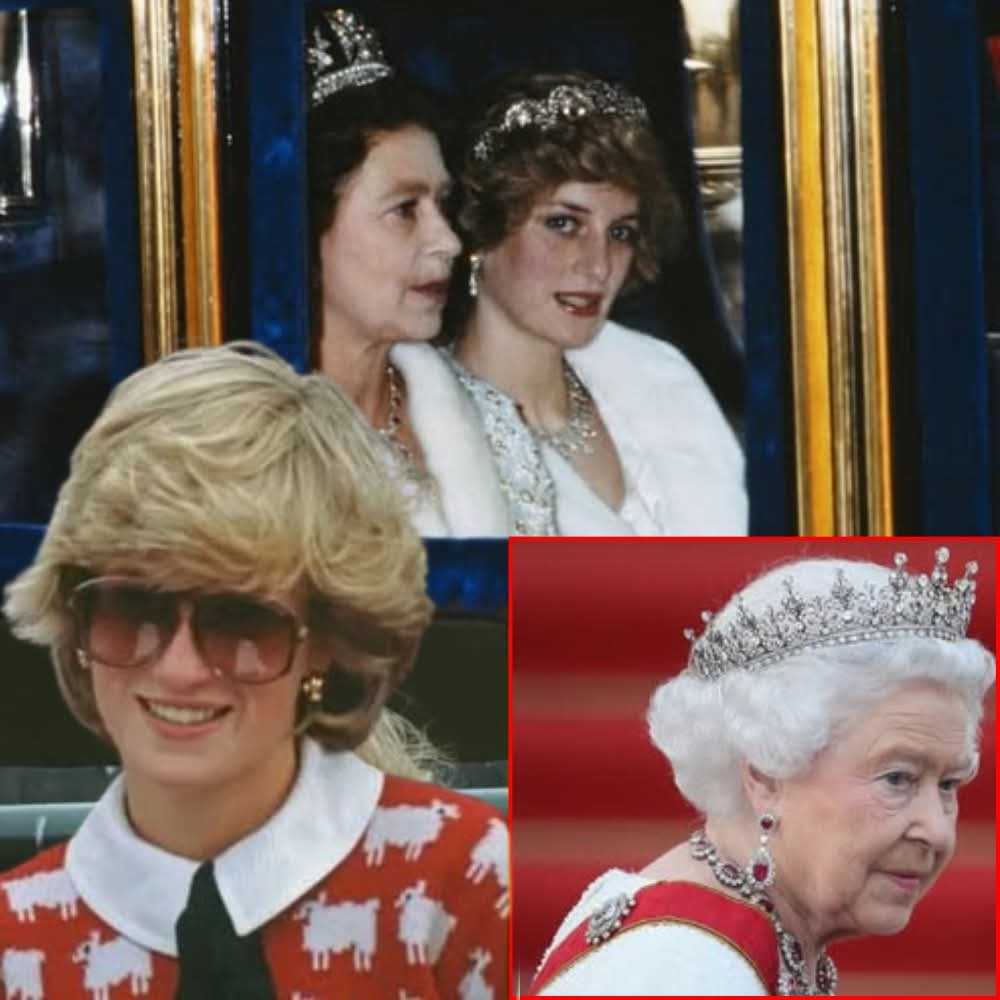NEWS
HOURS AFTER DIANA’S DE-ATH: Queen Elizabeth Banned Two Things to ‘Protect’ Harry and William — The Secret Rules That Sh0cked Even the Royals 😮…see more details

HOURS AFTER DIANA’S DE-ATH: Queen Elizabeth Banned Two Things to ‘Protect’ Harry and William — The Secret Rules That Sh0cked Even the Royals 😮…see more details
Hours After Diana’s Death: The Two Bans Queen Elizabeth Imposed to Protect William and Harry
When Princess Diana tragically died on August 31, 1997, the royal family was vacationing at Balmoral Castle. In the immediate aftermath, Queen Elizabeth II made swift, decisive decisions to shield her young grandsons, Princes William and Harry—then 15 and 12—from the overwhelming media storm and emotional trauma.
1. All TVs and Radios Were Removed or Silenced
Queen Elizabeth ordered that all televisions and radios be removed or disabled from the parts of Balmoral accessible to William and Harry. Only units in the private quarters of the Queen and Prince Philip remained operational. This ensured that the boys wouldn’t accidentally learn of their mother’s death through shocking news coverage or public commentary.
The News International
International Business Times Australia
William later confirmed that newspapers and similar material were deliberately kept out of the rooms they frequented, so “there was nothing in the house to read.”
InStyle
The Guardian
2. They Were Not Allowed to Fly Together with Their Father
Under royal protocol, heirs are typically prohibited from traveling together—for security and continuity of succession. Yet in the early days following Diana’s death, Queen Elizabeth granted permission for Prince Charles, William, and Harry to fly together on the Queen’s Flight from Balmoral to London. This break in tradition reflected her unwavering prioritization of the boys’ emotional state and safety.
Express
Why These Measures Mattered
Emotional Protection: Shielding the boys from the relentless media attention allowed them to begin processing their grief in private, away from public frenzy. William later expressed gratitude for the privacy he had to “mourn … and collect our thoughts.”
InStyle
The Guardian
Pragmatic Compassion: Extending the travel protocol was motivated by what was best for the grieving family unit, rather than rigid tradition. It underscored that, in moments of crisis, personal wellbeing took precedence.
Additional Context: Royals Breaking Protocol in a Storm of Public Grief
While these two decisions were the most immediate, others followed in quick succession:
Flag Controversy: Buckingham Palace initially did not display the royal flag or fly it at half-mast, in line with longstanding protocol. But public uproar forced a compromise—eventually, the Union Flag was flown at half-mast as the Queen returned to London.
Wikipedia
Delayed Public Address: Queen Elizabeth waited until September 5—five days after Diana’s death—to deliver a televised speech to the nation, blending her roles as both a monarch and a grieving grandmother to help mend the public’s rising anger.
Wikipedia
+1
Headline-Style Summary
“Hours After Diana’s Death: Queen Elizabeth Banned TVs, Radios, and Broke Protocol—To Protect Her Grandsons.”
Removed media from Balmoral to shield young princes.
Permitted Charles, William, and Harry to fly together—an unprecedented break in custom.
Balanced grief and duty in a time of national mourning.
Fact vs. Fiction
Fact: The Queen did remove broadcasting equipment and lifted traditional flight restrictions for Charles and the boys.
The News International
International Business Times Australia
Express
Fiction: There’s no evidence of bans beyond those two. For instance, suggestions of forbidding mention of Diana at a church service are speculative and not well documented.
International Business Times Australia
InStyle
The Guardian
These responses illustrate how Queen Elizabeth skillfully blended her royal responsibilities with her human instincts as a grandmother—making tough, sometimes controversial choices to safeguard her grandchildren’s emotional well‑being in a moment of profound tragedy.











